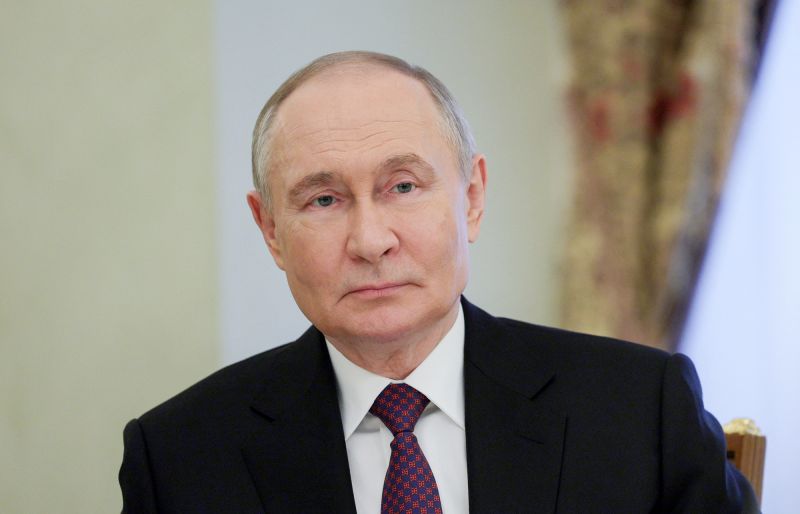Russian President Vladimir Putin announced on Monday a unilateral three-day ceasefire in Ukraine starting from early May. However, Ukrainian officials are skeptical and are urging for a longer truce proposal that the United States has put forward but Putin has rejected so far.

The ceasefire, scheduled from midnight May 8 to midnight May 11, was declared by Moscow citing humanitarian reasons. The timing coincides with Russia's World War II Victory Day on May 9 and the 80th anniversary of the defeat of Nazi Germany.
Putin's move comes as the Trump administration increases pressure on Moscow and Kyiv to reach a peace deal. US Secretary of State Marco Rubio emphasized the critical nature of the upcoming week in determining the progress of peace negotiations.
Ukrainian President Volodymyr Zelensky had previously accepted a US-led proposal for a 30-day ceasefire in early March, but Putin has consistently refused to agree to it.
Ukrainian Foreign Minister Andrii Sybiha responded to Putin's announcement by stating, "If Russia truly wants peace, it must cease fire immediately. Why wait until May 8th? Ukraine is ready to support a lasting ceasefire for at least 30 days."
In the past, Ukraine and Russia have accused each other of violating truces. The recent Easter ceasefire lasted 30 hours, during which Ukraine alleged over 2,900 attacks by Russia. Between April 19 and April 28, at least 62 civilians were killed in Ukraine, according to local authorities and emergency services.
The US is actively involved in negotiating an end to the conflict, with senior officials describing the coming weeks as crucial. President Trump has expressed frustration over the lack of progress in brokering a peace agreement within his desired timeframe.
Moscow and Washington have engaged in discussions, with Trump urging Putin to sign a deal and bring an end to the conflict. The story continues to develop as peace negotiations persist.
